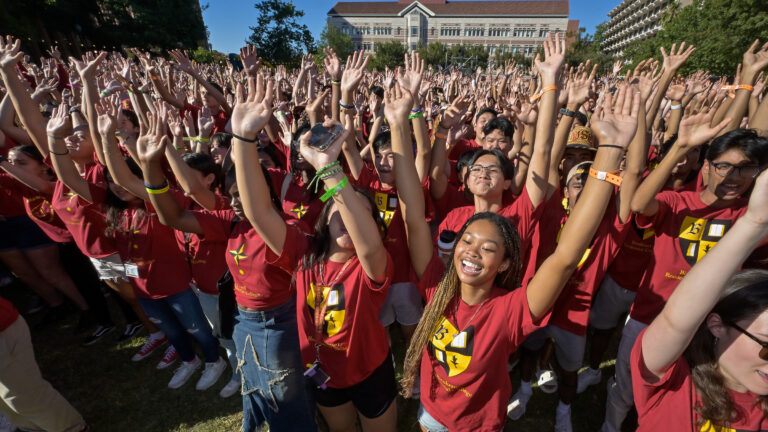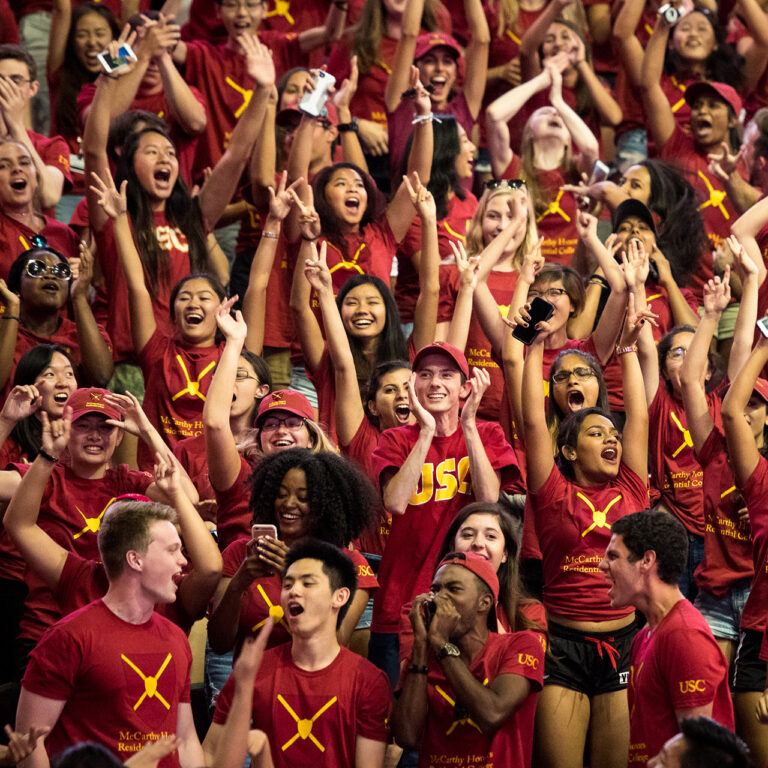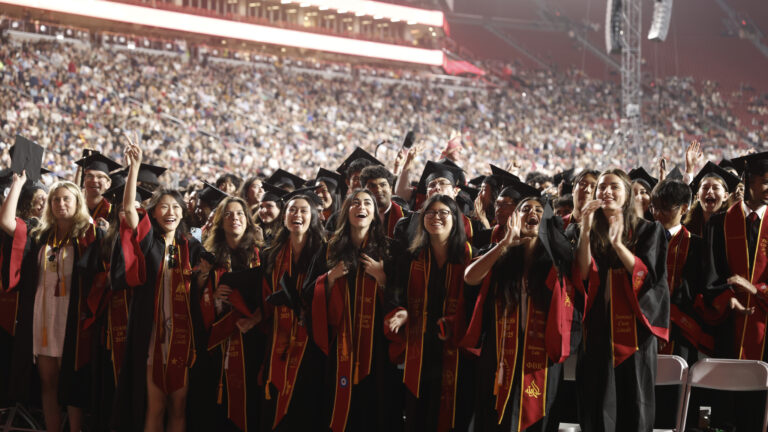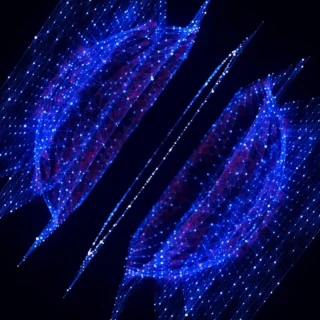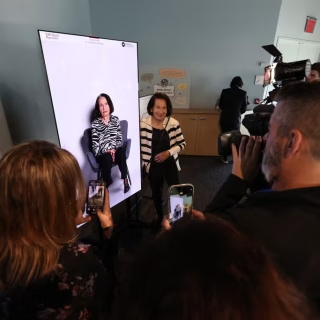Hurricanes and Health
A USC-led study finds that even storms below hurricane strength significantly increase infant deaths in poorer countries — and not just for the reasons experts expected.
(Photo/iStock)
Bold Growth, Lasting Impact
After six years of visionary leadership, Carol Folt is retiring as USC’s 12th president. The bold “moonshots” and initiatives she’s introduced have positioned USC as a leader in research, technology, health, athletics, innovation and more.

Top Headlines
USC’s men’s track and field scored in seven events to win a share of the team title during the final day of the 2025 NCAA Men’s Outdoor Track & Field Championships being held in Eugene, Ore. on Friday. USC finished with 41 points to tie with Texas A&M for the team title.
As USC Village’s inaugural faculty in residence wrap up their final year in the complex’s residential colleges, they reflect on the community they helped build in the eight years since the facility opened.
Finance leader Bret Johnsen and real estate executives Wil Smith and Glenn Sonnenberg are elected to the university’s governing board.
The institute, supported by funds from the Lord Foundation of California, is the next step in the university’s effort to enhance research and education under the Frontiers of Computing “moonshot.”
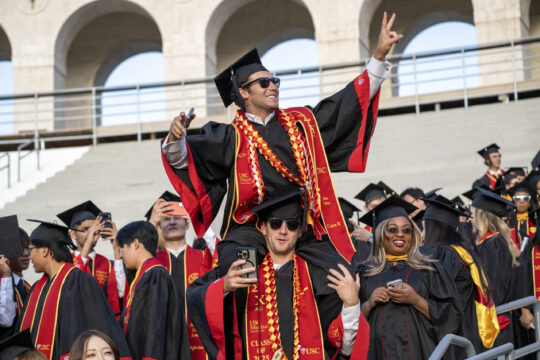
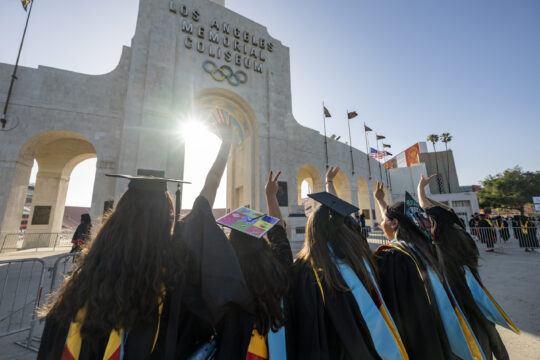

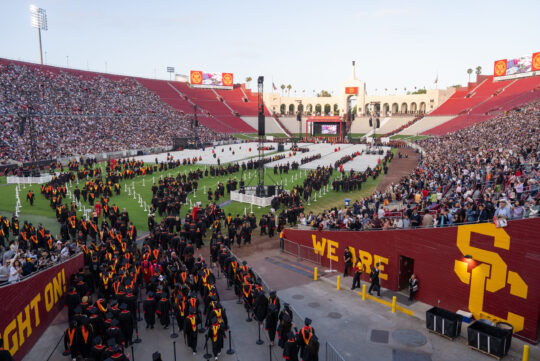
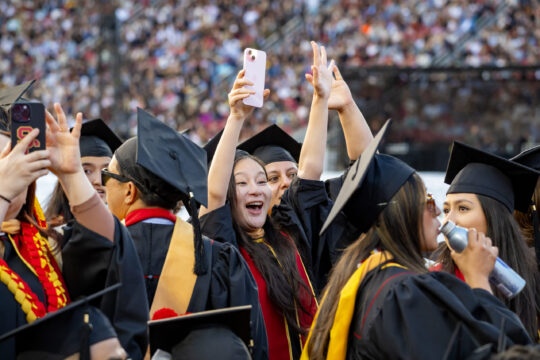
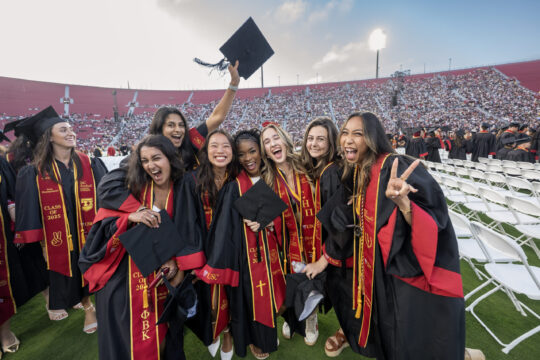
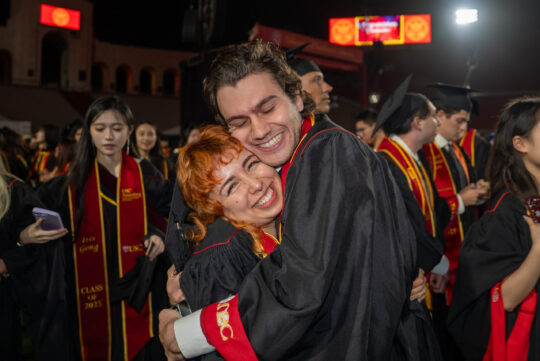
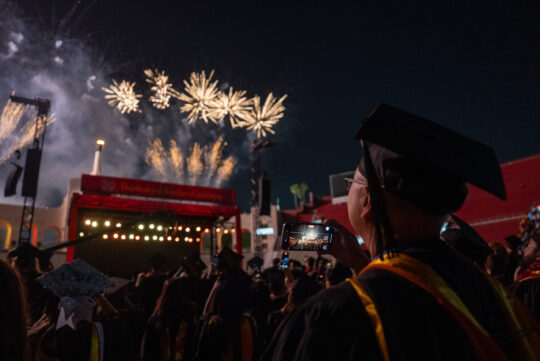
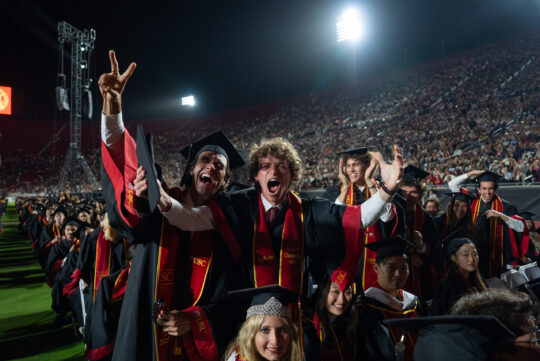









Stories from the Class of 2025
University Updates
Useful links to important information.
USC Announces Presidential Search Committee, Interim Leadership
The committee will include faculty, staff, students and alumni. Beong-Soo Kim, USC general counsel, will lead the university on an interim basis beginning July 1 after Carol Folt’s retirement as president.

Computing Without Boundaries
USC is reimagining computing’s role across disciplines—advancing quantum research, championing ethical AI and launching bold initiatives in blockchain and business. This is innovation at the intersection of technology and human insight.
USC Marshall announces Business of Blockchain initiative
Strategic investment accelerates teaching, research and industry engagement, shaping the impact of decentralized technologies across sectors.
Breakthrough procedure opens new opportunities in quantum research
A new USC-developed technique enhances quantum sensing by counteracting the limitation of decoherence, unpredictable behavior caused by environmental noise.
USC Digital Repository powers new AI-driven Holocaust testimony installation
Interactive exhibition will ensure that survivors’ firsthand accounts remain accessible for future generations.

Ideas in Action: Thought Leadership from USC
Step inside USC’s podcast studio for thought-provoking conversations that explore the ideas shaping our world. Ideas in Action features scholars, creators and changemakers across disciplines—offering insights that spark curiosity and drive progress. Discover how Trojan minds are turning research and reflection into real-world impact. Catch up on our past seasons today.
